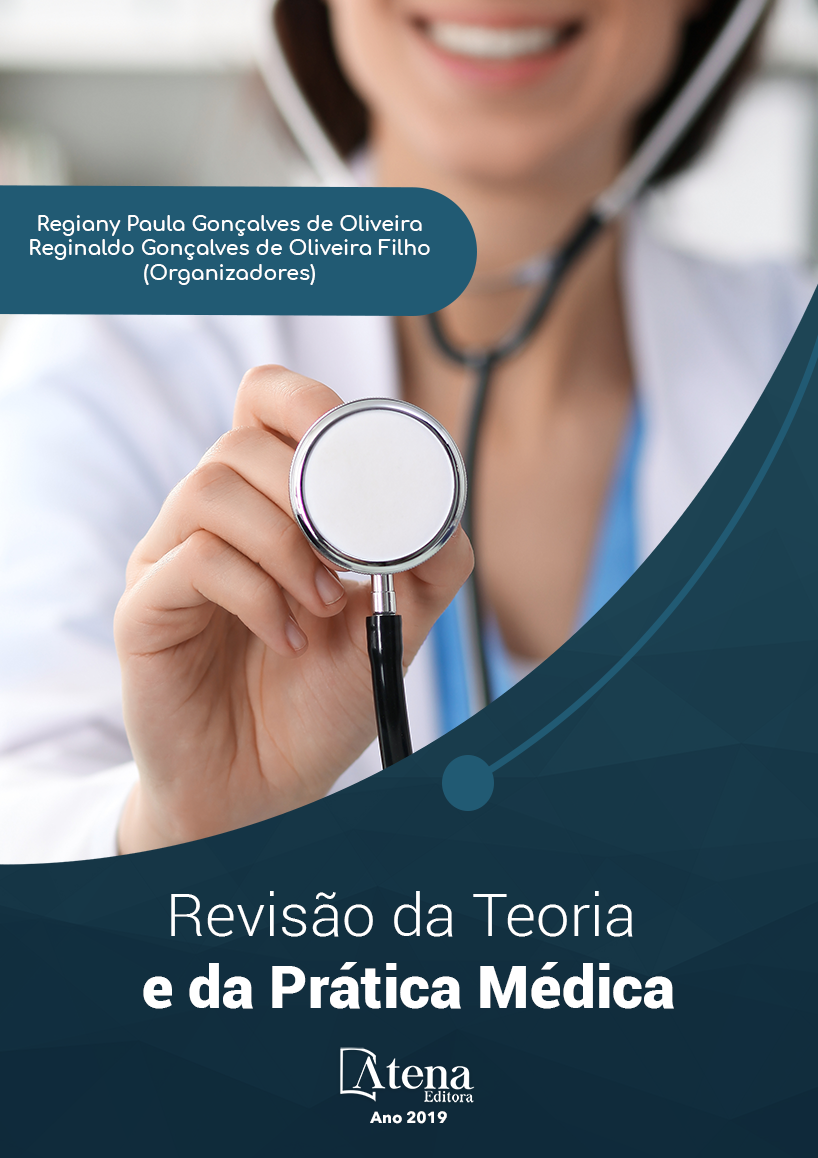
PERCEPÇÃO DE USUÁRIOS DO HIPERDIA SOBRE QUALIDADE DE VIDA EM UMA UNIDADE BÁSICA DE SAÚDE, EM OLINDA, PERNAMBUCO.
INTRODUÇÃO: Um dos mais
importantes programas do SUS é o Hiperdia.
Visa cadastrar, atender, medicalizar, prevenir
e desenhar o perfil epidemiológico dos casos
de Hipertensão Arterial Sistêmica e Diabetes
Mellitus na Atenção Básica de Saúde.
Igualmente, existe a presença da Saúde
Mental no contexto da Clínica Ampliada,
sendo a Qualidade de Vida um dos mais
destacados fatores relacionados com o bem
estar psicossocial. OBJETIVOS: Analisar a
autopercepção de pacientes do Hiperdia em uma
unidade básica de saúde sobre a qualidade de
vida. MÉTODOS: Estudo qualitativo, analítico e
transversal. Campo: Unidade Básica de Saúde
Cohab-Peixinhos, em Olinda, Pernambuco.
Instrumentos: Questionário sociodemográfico e
Versão Brasileira do Questionário de Qualidade
de Vida (SF-36). Sujeitos da pesquisa: Sexo:
Feminino (73%). Dona de casa (73%). Casado
(58%). 61 a 70 anos (39%). Fundamental
incompleto (38%). Evangélica (49%). Do lar/
inativo (40%). Classe E (82%). Aspectos éticos:
Pesquisa aprovada pelo Comitê de Ética da
Unicap (CAAE 65956017.9.0000.52062500)
RESULTADOS: Resultados: Estado geral:
Bom (59%). Comparação com ano anterior:
Quase o mesmo (37%). Capacidade funcional:
Pouca dificuldade (56%). Limitações físicas:
Menos tempo e tarefas realizadas (60%
cada). Limitações emocionais: Menos tarefas
realizadas (52%). Interferência física e
emocional nas atividades sociais: Moderada
(33%). Interferência da dor corporal na vida
social: Pouca/moderada (54%). Vitalidade: Boa
parte do tempo (60%). Saúde mental: Alguma
parte do tempo (57%). Estado mental nas
últimas quatro semanas: Deprimida alguma/
pequena parte do tempo (41%). CONCLUSÃO:
As limitações físicas e emocionais indica
necessidade de articulação mais sistemática
do Hiperdia com o Núcleo de Apoio à Saúde da
Família.
PERCEPÇÃO DE USUÁRIOS DO HIPERDIA SOBRE QUALIDADE DE VIDA EM UMA UNIDADE BÁSICA DE SAÚDE, EM OLINDA, PERNAMBUCO.
-
DOI: 10.22533/at.ed.06519030913
-
Palavras-chave: atenção primária à saúde, qualidade de vida, saúde mental, hipertensão arterial, diabetes mellitus.
-
Keywords: primary health care, quality of life, mental health, arterial hypertension, diabetes mellitus.
-
Abstract:
INTRODUCTION: One of the most important programs of SUS is Hiperdia.
It aims to register, attend, medicalize, prevent and design the epidemiological profile
of the cases of Systemic Arterial Hypertension and Diabetes Mellitus in Primary Health
Care. Also, there is the presence of Mental Health in the context of the Expanded
Clinic, with Quality of Life being one of the most factors related to psychosocial wellbeing.
OBJECTIVES: To analyze the self-perception of patients of the Hyperdia in a
basic unit of health on the quality of life. METHODS: A qualitative, analytical and cross
- sectional study. Field: Basic Cohab-Peixinhos Health Unit, in Olinda, Pernambuco.
Instruments: Sociodemographic questionnaire and Brazilian version of the Quality of Life
Questionnaire (SF-36). Research Subjects: Gender: Female (73%). Housewife (73%).
Married (58%). 61 to 70 years (39%). Fundamental incomplete (38%). Evangelical
(49%). Home / inactive (40%). Class E (82%). Ethical aspects: Research approved by
the Unicap Ethics Committee (CAAE 65956017.9.0000.52062500) RESULTS: Results:
General state: Good (59%). Comparison with previous year: Almost the same (37%).
Functional capacity: Low difficulty (56%). Physical limitations: Less time and tasks
performed (60% each). Emotional limitations: Less tasks performed (52%). Physical
and emotional interference in social activities: Moderate (33%). Interference of body
pain in social life: Low / moderate (54%). Vitality: Good part of the time (60%). Mental
health: Some part of the time (57%). Mental state in the last four weeks: Depressed
some / small part of the time (41%). CONCLUSION: Physical and emotional limitations
indicate a need for a more systematic articulation of Hyperdia with the Family Health
Support Center.
-
Número de páginas: 15
- Moab Duarte Acioli
- Mariana Beatriz Silva Torres Galindo
- Bárbara Azevedo Neves Cavalcanti
- Gabrielle Lins Serra
- Mariana Torres Galindo


